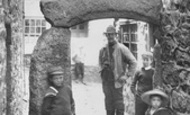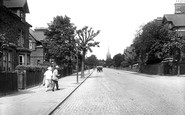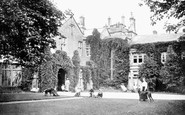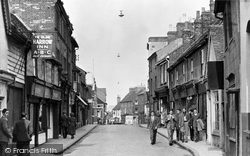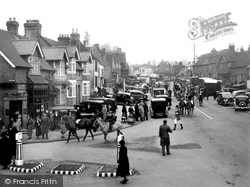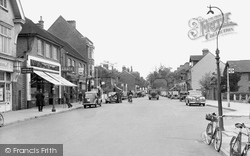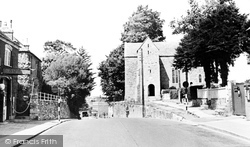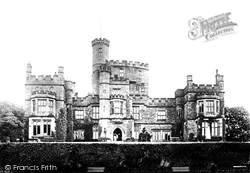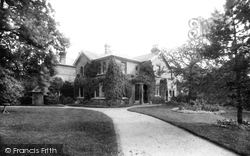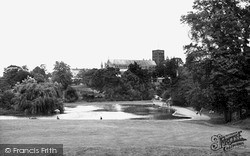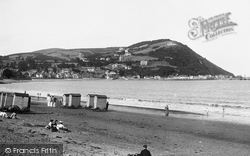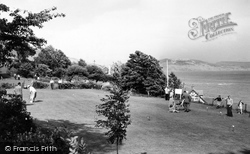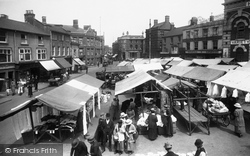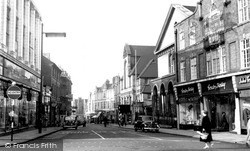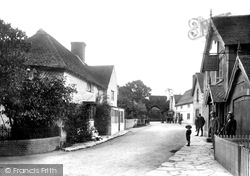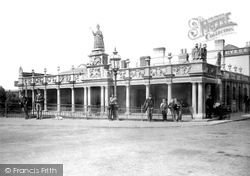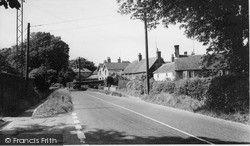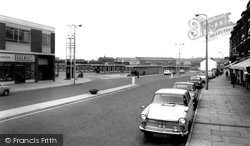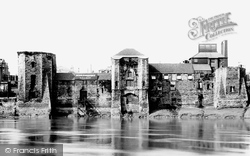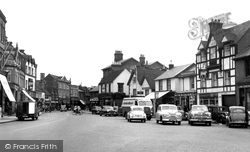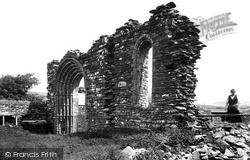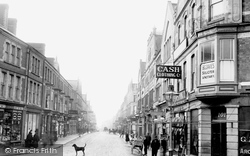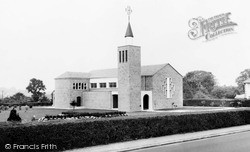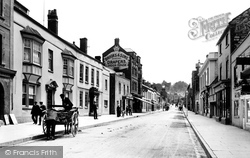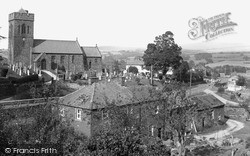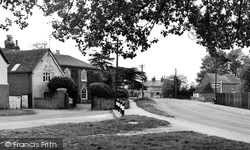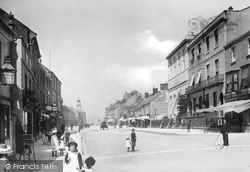Places
Sorry, no places were found that related to your search.
Photos
5 photos found. Showing results 941 to 5.
Maps
83 maps found.
Books
Sorry, no books were found that related to your search.
Memories
1,127 memories found. Showing results 471 to 480.
A Local Landmark
This granite archway (just off the Digey) once marked the entranceway to an old Manor House belonging to the Hicks family. The area beyond the arch is still known as Hicks Court.
A memory of St Ives by
Driving Test Centre
At the junction of Station Rd. and Northampton Rd. was the much feared driving test centre. I took driving lessons during 1962/3 in the instructor's car an Austin A40 or A45. The usual matchstick was placed in the rear window to ...Read more
A memory of Kettering by
Swimming Pools In Andover
I well remember the open air swimming pool where we used to go for swimming lessons from Norman Gate primary school as well as the open air pool at the Grammar School featured in one of your photos. However my first ...Read more
A memory of Andover by
Heysham Tower
This is not so much a personal memory, as a personal connection! My great-great grandparents lived at the Tower. Thomas John Knowlys (b.1803) and his wife, Anna Maria, (MarIea, not Maree-a!!) nee Hesketh, lived and died there, and ...Read more
A memory of Heysham in 1860 by
The Old Days In Solford
I started life in Berrie Street off Ellor Street in Salford, the houses then were all terraced with back entries at the back of Saint Paul's chuch. The first school I remember going to was John Street then the following: ...Read more
A memory of Salford in 1860 by
Revjkmiller 1855
My great-great-great grandfather Rev.J.K.Miller was the vicar at this church until 1855 for quite sometime. It was so good to visit the church for the first time in 2008 Summer and to meet the vicar. The village doesn't seem ...Read more
A memory of Walkeringham in 1860
Beach
I was born in Torquay in June 1954 in Shrublands Hospital (can anybody remember that hospital, it was in the Warberrys). I left Torquay when I was 23 and came to live in London, my heart is still there. Who knows, I might retire back there. ...Read more
A memory of Torquay in 1860 by
Shadrach Jenkins
My paternal great great grandfather came from Bream, Gloucestershire on July 31st 1831. He was the 10th of 14 children and was born at Oakwood Mill. He started work when he was 9 years of age, minding doors at Brunswick Coal Pit, ...Read more
A memory of Bream in 1860 by
William Bernard Taylor Family Farm Before They Emigrated To Australia In 1853
SUDBURY 591/0/10020 GREAT WALDINGFIELD 21-NOV-05 HOLE FARM II House. Formerly a mid-C15 service building remodelled as a house in c.1600; later C17 extension to ...Read more
A memory of Sudbury in 1860 by
Moving To Aberbargoed
My parents (Eirwen & Haydn Williams) moved to Aberbargoed from Gilfach to take over the newsagents in 1967 next to the New Duffryn pub when I was 11. Being a Bargoed lad I was very apprehensive about moving over to ...Read more
A memory of Aberbargoed in 1870 by
Captions
1,233 captions found. Showing results 1,129 to 1,152.
The pub has now merged with the Barleycorn on the Buckingham Street corner and is archly renamed the Farmyard and Firkin.
Here the photographer looks west along the High Street from the junction with Outwood Lane on the morning of a fox hunt - this type of scene was much favoured for Frith postcards.
There has been much rebuilding of this part of the High Street, none of it for the better, since the 1950s; continuity has been achieved only by the building at the far left, which is still
Anglo-Saxon arcading was replaced by Norman arches in the 12th century. The view is northwards from North Street, down to the sign of the former Lord Nelson public house (centre).
Painted by the artist Turner, it became famous and was much visited. It was built by the Norman Montbegon family just after they arrived in Lancashire.
Note the round-arched windows and the ornamental bargeboards that are characteristic of the 1860s and early 1870s. Woodside Road was also laid through the former Benhill Woods.
Much of the original structure was built using rubble from the remains of the Roman town of Verulamium, which stood close to the present Verulamium Park.
Once a port described by Daniel Defoe as 'fairer, and much deeper, than those at Watchet and Porlock', it turned into a major seaside bathing resort in the later 19th century.
By 1962 they were being torn apart by landslips, and the situation was much the same in 2005, with this area being sealed off.
This view from the middle of the Market Place is not much altered since 1922. The view towards the Royal Hotel and Lloyds Bank is almost unchanged.
Clothes were still made at home, and Thoday sold patterns, often by Vogue, which could cost as much as 7s 6d, and also the more humble and easier designs selling for 1s 9d.
Here the photographer looks from by the churchyard gate past the Half Moon pub to the unusual arch formed by two elm trees, now long gone. The pavements are large slabs of sandstone.
The Tone Stone, on which business deals were struck, is partially obscured in front of the centre arch.
The road widens to form Posey Green, with the 1930s Horseshoe Inn on the right out of camera shot; it is a rambling mix of local sandstone and timber-framing with a huge horseshoe- arched
When the bus station opened on 20 May 1963, much Castleford history was lost with the demolition of the Queen's Head Hotel and Wainwright Street.
In the centre is the square gate tower with its arched water gate. Boats could enter the castle through the water gate, as there was a small quay to the rear of the tower.
Beyond, much is rebuilt, apart from the 18th-century three-storey building with a pediment and Venetian windows.
The abbey was dissolved by Henry VIII in 1539 and was sold to the Earl of Essex and his agent, John Stedman, whose family later used much of the stone in their mansion and farm buildings.
There is much to see in this picture, including the flat-capped men looking directly at the photographer on the right, and the more casual observers further up the street.
Several people were killed, and much damage was done to local property.
Since 1909, Brooks and Sons and the house to its left have been demolished, and the Arches Way road formed. To the right, the finial belongs to The Avalon Club of 1897.
Not long after, the enthusiastic wood-carving cleric Canon Wilson adorned the interior with much of his own work.
The house on the left, Gothic House, has elegant Strawverry Hill Gothick style late 18th-century arched windows, while the gabled wing has a painting of St George and the Dragon above the first floor window
On the street, a new generation had not yet been born in the Victorian shot, but otherwise not much has changed.
Places (0)
Photos (5)
Memories (1127)
Books (0)
Maps (83)

